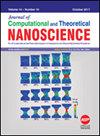Computer-Vision-Based Advanced Optical Music Recognition System
Q3 Chemistry
Journal of Computational and Theoretical Nanoscience
Pub Date : 2021-05-01
DOI:10.1166/jctn.2021.9626
引用次数: 0
Abstract
Computer vision is an artificial intelligence technology that studies techniques for extracting information from images. Several studies have been performed to identify and edit music scores using computer vision. This study proposes a system to identify musical notes and print arranged music. Music is produced by general rules; consequently, the components of music have specific patterns. There are four approaches in pattern recognition that can be used classify images using patterns. Our proposed method of identifying music sheets is as follows. Several pretreatment processes (image binary, noise and staff elimination, image resizing) are performed to aid the identification. The components of the music sheet are identified by statistical pattern recognition. Applying an artificial intelligence model (Markov chain) to extracted music data aids in arranging the data. From applying the pattern recognition technique, a recognition rate of 100% was shown for music sheets of low complexity. The components included in the recognition rate are signs, notes, and beats. However, there was a low recognition rate for some music sheet and can be addressed by adding a classification to the navigation process. To increase the recognition rate of the music sheet with intermediate complexity, it is necessary to refine the pre-processing process and pattern recognition algorithm. We will also apply neural network-based models to the arrangement process.基于计算机视觉的高级光学音乐识别系统
计算机视觉是一种人工智能技术,研究从图像中提取信息的技术。已经进行了几项利用计算机视觉识别和编辑乐谱的研究。本研究提出了一个识别音符和打印编排音乐的系统。音乐是按照一般规则产生的;因此,音乐的组成部分具有特定的模式。模式识别中有四种方法可以用于使用模式对图像进行分类。我们提出的识别乐谱的方法如下。执行了几个预处理过程(图像二进制化、噪声和人员消除、图像大小调整)来帮助识别。乐谱的组成部分是通过统计模式识别来识别的。将人工智能模型(马尔可夫链)应用于提取的音乐数据有助于排列数据。通过应用模式识别技术,对低复杂度的乐谱显示出100%的识别率。识别率中包含的成分包括符号、音符和节拍。然而,一些乐谱的识别率很低,可以通过在导航过程中添加分类来解决。为了提高中等复杂度乐谱的识别率,有必要改进预处理过程和模式识别算法。我们还将把基于神经网络的模型应用到排列过程中。
本文章由计算机程序翻译,如有差异,请以英文原文为准。
求助全文
约1分钟内获得全文
求助全文
来源期刊

Journal of Computational and Theoretical Nanoscience
工程技术-材料科学:综合
自引率
0.00%
发文量
0
审稿时长
3.9 months
期刊介绍:
Information not localized
 求助内容:
求助内容: 应助结果提醒方式:
应助结果提醒方式:


